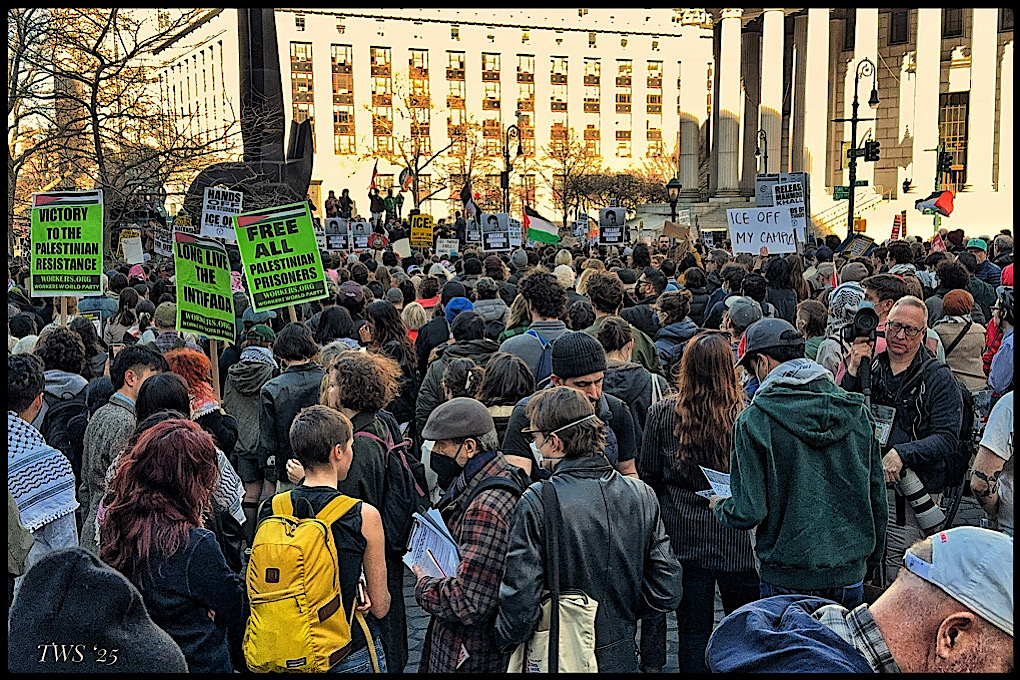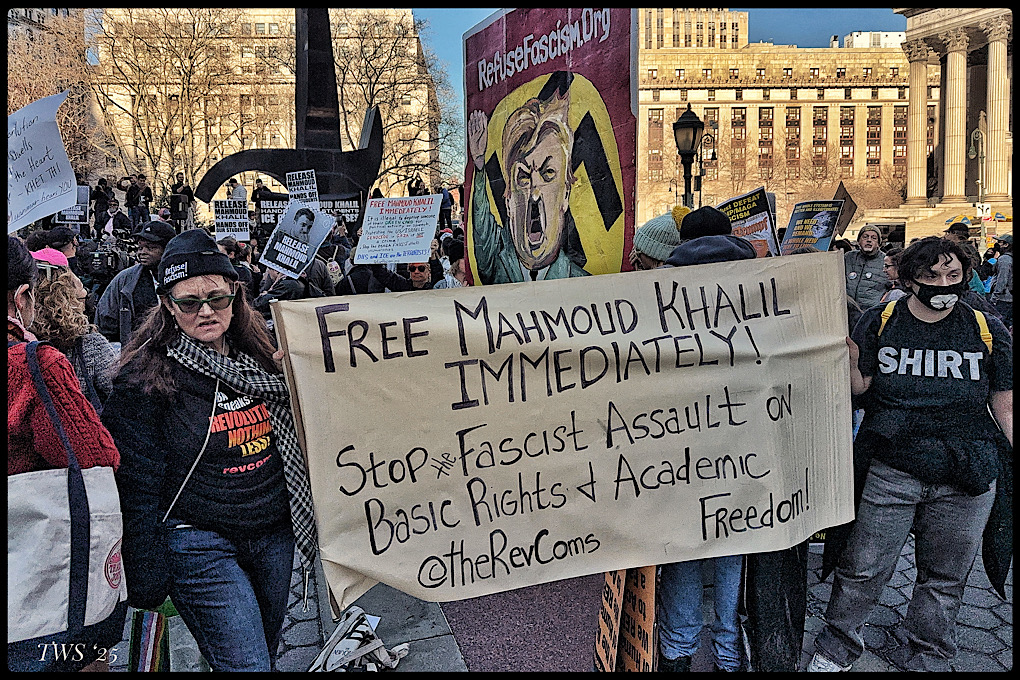A federal judge in New York on Monday blocked the Trump administration’s effort to deport Mahmoud Khalil until a court hearing regarding his case on Wednesday. On the same day, hundreds of protesters gathered in Federal Plaza to protest the detention of the Palestinian Columbia graduate, who had organized protests throughout last spring on campus against the Israeli invasion of Gaza.
Khalil was arrested by Immigration and Customs Enforcement agents on Saturday night as he entered his apartment with his pregnant wife near the Ivy League school’s Morningside campus. According to his lawyer, Amy Greer, ICE agents said that they were carrying out orders from the State Department and his student visa was being revoked. When Greer informed them that Khalil was a permanent resident with a green card, she was told that this was to be revoked as well. She also says that when she asked if they had a warrant, the agent hung up on her.
Beyond the accounts given to media by Greer and Khalil’s wife, much remains unclear and unconfirmed on the government’s side. Other than blanket statements from on social media from the Department of Homeland Security and the Secretary of State Marco Rubio confirming some form of coordination between the agencies, La Voce’s inquiries to their local offices about the arrest – whether ICE had a warrant, what the legal basis is for the order to arrest Khalil – have gone unanswered for two days.
On Monday morning, a senior Homeland Security official told CNN that the Trump administration is basing its action on the Immigration and Nationality Act, and Vietnam War-era law that states “an alien whose presence or activities in the United States the Secretary of State has reasonable ground to believe would have potentially serious adverse foreign policy consequences for the United States is deportable.” Still, whether or not this explanation carries weight is made dubious by the fact that it s not being communicated by the relevant agencies through official channels, only through an anonymous source to a news outlet.

At the protest in Manhattan’s Federal Plaza organized by The People’s Forum, naturalized citizens expressed serious concerns at the apparent lack of due process. “I got my citizenship 20 years ago, and before that I had a green card for many, many years,” says Noemi Bonazzi, a set designer who lives in Brooklyn, originally hailing from Italy. “So first and foremost, the prospect of losing it from one day to another is terrifying. We are clearly falling into a fascist state, and we feel compelled to be here and fight it.” Her husband, Rob Buchanan, considered Khalil’s detention a “disappearance.”
Buchanan’s concerns appear well-founded, as Khalil’s whereabouts are apparently closely guarded by authorities. An ICE detainee lookup tool online indicated that someone with that name is indeed in custody at an ICE facility in Jena, Louisiana, but La Voce’s inquiries with the facility proved fruitless, as officials would not confirm that this was the same Khalil from New York without being provided his alien number, a point of data that only Khalil himself can give out. They refused to confirm his identity based on the date and location of the arrest. Here again, confirmation came from more indirect sources, as migrant rights organizations working on his case have told media outlets that he was held in Elizabeth, New Jersey before being transferred to ICE detention center in Louisiana.
In a post on Truth Social this afternoon, President Trump called Khalil’s detention “the first arrest of many to come.”












